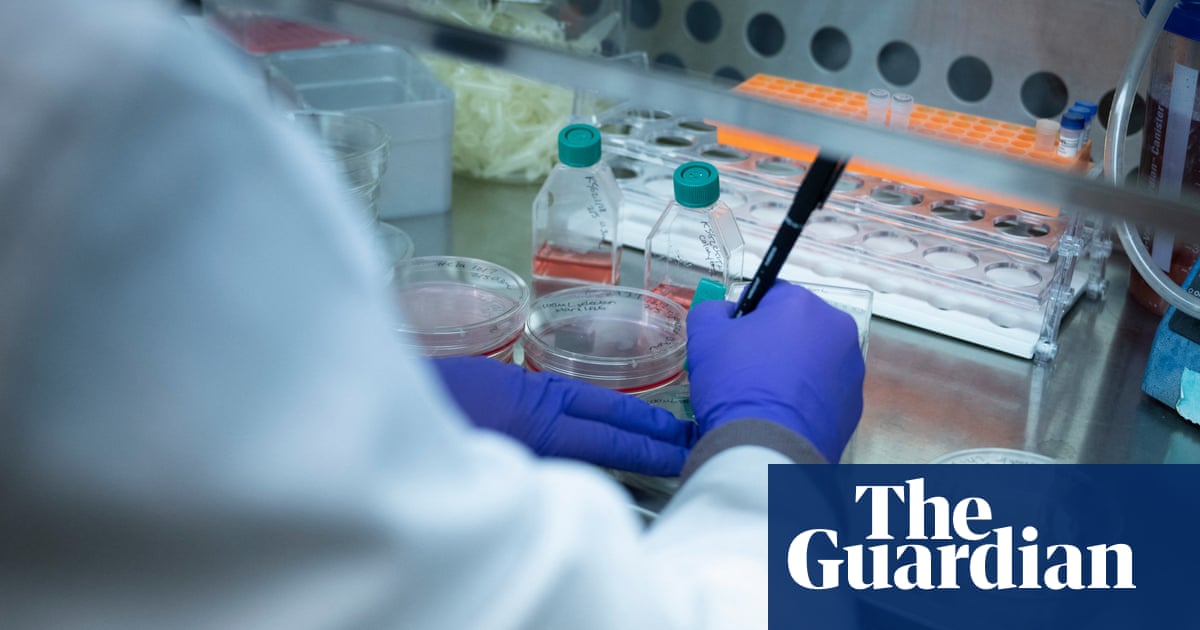Hundreds of families inNottinghamshirehave potentially been left unaware of whether their babies may be carriers of certain genetic blood disorders, the second such NHS error to come to light since the start of this year.
About 300 families whose children were born between 2004 and September 2024 in Bassetlaw and mid-Nottinghamshire were identified by theNHSas being affected.
Changes in how genetic testing results were communicated to families meant they may not have been informed of whether their child was a carrier of a trait forsickle cell diseaseor for an unusual haemoglobin gene.
NHSEnglandsaid it has contacted the families affected directly by letter so that they understand what being a carrier means for them and their children.
The NHS has also said that since the error, changes have been made to the way blood results are communicated within the area to make it more robust. Nottingham University hospital’s local haemoglobinopathy team is now delivering the screening result for sickle cell carrier status to parents of children in the whole of Nottingham and Nottinghamshire. Previously, this sickle cell notification pathway only covered the city and the south of the county.
Sickle cell disease primarily affects people from anAfrican-Caribbean background. Testing for the sickle cell trait is important because although carriers do not have sickle cell disease symptoms, there is evidence they have additional medical needs, such as if they need an anaesthetic.
The sickle cell trait may affect women during pregnancy, and carriers can experience pain during intense physical activity and at high altitudes, research suggests. If two parents carry the sickle cell trait, there is a one in four chance their children will have sickle cell anaemia.
In January, the Guardian reported that anerror by the NHSled to more than 800 families in Derbyshire not receiving the results of a heel prick test given to babies after birth, meaning they did not know whether their child was a carrier of a trait forsickle cell diseaseor for an unusual haemoglobin gene. NHS officials apologised “wholeheartedly” to the families affected, saying the error “shouldn’t have happened” and that an investigation had been launched.
John James, the chief executive of the Sickle Cell Society, said: “It is unacceptable that, once again, families have not been informed of their children’s newborn screening results. The fact that this issue has now emerged in another area, over a 20-year period, highlights a catastrophic weakness in the NHS’s system for communicating test results – with distressing consequences for parents and individuals who remain unaware of this vital information.
Sign up toFirst Edition
Our morning email breaks down the key stories of the day, telling you what’s happening and why it matters
after newsletter promotion
“While these individuals do not have sickle cell disorder, knowing they carry the trait is crucial for their long-term health and wellbeing, and for making informed decisions about their future, particularly as some will now be old enough to consider having a family of their own.
“We welcome the NHS’s efforts to resolve the situation in Nottinghamshire, but we are calling on those responsible to provide reassurance that processes in all other areas of England are robust and fit for purpose. It should not take repeated failures for basic procedures to be fixed. Getting screening right isn’t optional – it’s essential.”
An NHS spokesperson said: “We are sorry that we failed to inform some families in Bassetlaw and mid-Nottinghamshire that their children were carrying the sickle cell or unusual haemoglobin genes immediately following the results being available. We are putting in place a robust process to make sure this does not happen again.”
